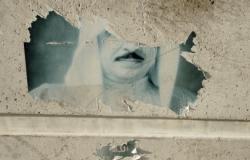Requiem for BICI

Bill Law argues that the promise of the Bahrain Independent Commission of Inquiry to examine the violence of 2011 has nearly been forgotten. This is a chapter from the e-book 'The Future of the Middle East' co-produced by Global Policy and Arab Digest, and edited by Hugh Miles and Alastair Newton. Freely available chapters will be serialised here and collected into a final downloadable publication in the spring.
The Gulf island kingdom of Bahrain remains the only Arab state to undertake a comprehensive and independent review of abuses that occurred during what has come to be called the Arab Spring. The Bahrain Independent Commission of Inquiry (BICI) was established by Bahrain’s ruler King Hamad bin Isa Al Khalifa in June 2011 and examined events in February and March of that year during which 35 people died, hundreds were arrests and more than four thousand summarily dismissed from their jobs in the public and private sectors. Several hundred university and polytechnic students were expelled. Other students had their scholarships withdrawn. The vast majority of those affected were Shia Muslims, the majority population in a country ruled by the Sunni Al Khalifa family.
The commission was chaired by the Egyptian law professor M. Cherif Bassiouni who, when he presented the 503 page report to King Hamad on 23 November 2011, noted:
'This is a unique historic and social event because, for the first time, a government that is still in power, agrees to open all its files, subject itself to criticism, and to facilitate the work of those who seek to evaluate its performance and to identify its faults. This is despite the sensitivity of the situation in the country in which an atmosphere of mutual mistrust and social unrest prevails, and despite the consequences that could arise out of this inquiry.'
The report’s findings were exhaustive and detailed. In all, it made 26 recommendations. BICI established beyond all doubt that government security forces, including the police and the Bahrain Defense Force (BDF) acted within a culture of impunity and “perpetrated grave violations of human rights, including the arbitrary deprivation of life, torture and arbitrary detention” in crushing a pro-democracy movement. One of its crucial recommendations was:
'To establish a national independent and impartial mechanism to hold accountable those in government who have committed unlawful or negligent acts resulting in the deaths, torture and mistreatment of civilians with a view to bringing legal and disciplinary action against such individuals, including those in positions of command, whether civilian or military, in accordance with the principle of superior responsibility.'
The report found that of the 35 deaths, five were police officers and the remainder civilians. While all deaths in such circumstances are regrettable and very sad, one in particular stands out. Karim Al Fakhrawi was the co- founder of Bahrain’s only independent newspaper Al Wasat. When he went to a police station to complain that authorities were about to bulldoze his house, he was detained and a week later he died. The authorities initially claimed the death resulted from kidney failure. The truth was he was beaten to death. In December, 2012 two police officers were convicted of manslaughter and received sentences of seven years each, subsequently reduced to three years on appeal.
In the nearly six years since Professor Bassiouni released his report two versions of its impact have emerged. One narrative, that of the Bahrain government is to argue that all of the recommendations have been implemented in part or in full. For example, a police ombudsman’s office, the first in the region was established. Sacked employees were allowed to return to their jobs and students to school. The government says that reform in the wake of BICI is a job in progress:
Our work is ongoing – the BICI implementation is only one part of a comprehensive reform project begun more than a decade ago. It will be continued well into the future. We are committed to achieving our reform with the approval of the Bahraini population. We will spare no effort in ensuring the highest standards of welfare and wellbeing of all of the Bahraini people so that Bahrain continues to remain a prosperous, pluralistic, tolerant, humane and inclusive society, remaining a steadfast partner to our regional and global allies.
However reform, the government states, has been made difficult by foreign interference from Iran. As noted in the February 2014 report Moving Beyond 2011: “the aim of this (Iranian) intervention is to keep the ‘Bahrain crisis’ alive, a situation that the Iranians see as strategically beneficial.” The government argues that Iran is encouraging and fomenting unrest and violence in Shia communities in an attempt to undermine its authority and the legitimacy of the ruling family.
 The other narrative, supported by government opponents and by international human rights organisation such as Amnesty International and Human Rights Watch, argues that the culture of impunity continues unabated and that BICI provides convenient window dressing behind which the repression of opposition voices is unrelenting. Amnesty International in a report on Bahrain released in November 2016 said that since 2011 the use of torture and excessive force has continued, that freedom of speech, association and peaceful assembly has been severely curtailed and that the judiciary lacks independence while its courts continue to issue harsh sentences, including the death penalty, after unfair trials. Amnesty noted:
The other narrative, supported by government opponents and by international human rights organisation such as Amnesty International and Human Rights Watch, argues that the culture of impunity continues unabated and that BICI provides convenient window dressing behind which the repression of opposition voices is unrelenting. Amnesty International in a report on Bahrain released in November 2016 said that since 2011 the use of torture and excessive force has continued, that freedom of speech, association and peaceful assembly has been severely curtailed and that the judiciary lacks independence while its courts continue to issue harsh sentences, including the death penalty, after unfair trials. Amnesty noted:
Five years after the King accepted the BICI recommendations, and despite the creation of new institutions, a culture of impunity still prevails. Although the authorities have brought criminal prosecutions against at least 93 members of the security forces for alleged involvement in perpetrating unlawful killings, injuries, torture and other ill-treatment since November 2011, only a minority have been convicted, mostly receiving sentences that failed to reflect the gravity of the crime. Most of those prosecuted were low-ranking personnel. No senior officers or officials have faced prosecution for the serious human rights violations committed during the suppression of the 2011 uprising, despite the BICI’s call for further investigations and criminal prosecution of those suspected of being responsible.
Speaking in 2014 Cherif Bassiouni expressed his disquiet at what he called a “piece-meal” approach to reforms. While acknowledging that institutions such as the Ministry of the Interior (of which BICI was very critical), had made significant progress, he said:
The accountability mechanism leaves much to be desired. We’re dealing with about 300 cases of torture, we were dealing with then-known deaths under torture, at least 5 cases that were completely documented. These cases have not been adequately investigated, they have not been adequately prosecuted. The two prosecutions and the one conviction that came about were very, very meagre and very modest. That leaves a great deal to be desired.
Three years on and facing little international pressure the Bahrain government appears to be moving inexorably away from the ideals of justice and reconciliation that the Bassiouni report sought to encourage. On January 5, the powers of the National Security Apparatus (NSA) to arrest and detain people suspected of terrorist offences were restored by royal decree. Human Rights Watch in a statement released on January 31 noted that the decree rolled back what it called “one of the few significant security sector reforms introduced after 2011.”
Curtailing the powers of the NSA was a key recommendation of the BICI report which found that NSA officers were among groups of hooded, armed security forces who engaged in “terror-inspiring behaviour (which) could not have happened without the knowledge of higher echelons of the command structure of the Interior Ministry and NSA.” It also said that these agencies “followed a systematic practice of physical and psychological mistreatment, which in many cases amounted to torture, with respect to a large number of detainees in their custody.”
Many of the most egregious human rights abuses occurred after King Hamad declared, on March 15, 2011 a State of National Safety, which is one of two categories of states of emergency provided for under the constitution of Bahrain. The decree effectively placed the country under martial law. As Professor Bassiouni noted “ numerous violations of due process rights were recorded by the Commission during proceedings before the National Safety Courts, which were composed of a presiding military judge and two civilian judges.” Martial law was lifted in June 2011.
However, on 21 February this year the lower house of parliament voted almost unanimously to drop a clause in the constitution that prevented civilians from being tried in a military court. The amendment goes before the royally appointed Shura or upper house for “urgent consideration.” Should it, as expected, be approved, civilians may yet again face the rough and partial justice of military courts.
In the meantime ongoing legal cases continue to exacerbate anger and distrust within the Shia community toward the police and the judiciary. On 15 January three Bahrainis convicted of terrorism offenses in Manama were executed by firing squad, the first such executions in over 20 years. Two more men are facing the death penalty: Mohammad Ramadan and Husain Moosa. They were convicted of killing a police officer in December 2014. Both allege torture while in detention. They have exhausted all legal appeals and could be executed at any time. Citing the torture claims and the fact that the allegations were not properly investigated, Amnesty International has called for their death sentences to be commuted.
At the same time, a court case is proceeding against Ayatollah Isa Qassim, the highest religious authority in the Shia community. He has been charged along with two others with money laundering, harbouring terrorists and other violations that “threaten Bahrain’s security.” Last year the government stripped him of his citizenship, claiming that he used his position to “serve foreign interests and promote sectarianism and violence.” He is now effectively under house arrest.
The money laundering charge is said to relate to Sheikh Qassim's role in the Shia Muslim practice of khums, a donation made to clerics, who then redistribute it to religious and charitable causes. Since June 2016, over 70 Shia clerics have been questioned by authorities, with nine currently serving prison sentences for violations of Bahrain’s anti-terrorism laws.
Veteran human rights activist Nabeel Rajab has been held on remand since June of 2016, much of it spent in solitary confinement. Amnesty has declared him a prisoner of conscience. He is facing charges that could lead to jail terms of up to eighteen years. The charges relate to tweets he made objecting to the war in Yemen and that drew attention to allegations of torture in Jau prison where more than 1500 oppositionists and activists are held. He is also charged with “spreading false news” in a letter that was published in the New York Times in September 2016. Nabeel Rajab has already served more than two years in prison after previous convictions.
Sheikh Ali Salman, the leader of the now banned opposition political society Al Wefaq is serving a nine year sentence after being convicted of incitement against the government. Many other political and human rights activists are either in jail or risk detention and charges if they do not remain silent or they have fled abroad, most notably the pro-democracy Alkhawaja family. Abdulhadi Alkhawaja is serving a life sentence and his daughter Zainab was jailed on numerous occasions before joining her sister Maryam in exile.
All of these cases underline the fact that those within the Al Khalifa family who advocate a tough line against dissent have won the day. But it continues to come at a cost. Anger in Shia towns and villages is at its highest level since the 2011 uprising with near nightly protests and riots that in January, 2017 saw one off-duty officer killed and a protester left comatose after being shot in the head by police. With pro-democracy leadership jailed or in exile and criticism being ruthlessly put down, the sectarian nature of the conflict and the potential for greater violence grows by the day.
Now, with Donald Trump as president and Rex Tillerson, confirmed as Secretary of State, the future for human rights activists and opposition politicians in Bahrain appears very bleak. Neither Tillerson nor Trump have shown interest in or concern about human rights abuses in foreign countries. That, coupled with a quiescent FCO, is good news for government hardliners who will take silence from both the US and the UK as a sign of acceptance, if not approval of their continuing crackdown on opposition voices.
BICI when it was first published in November 2011 was rightly hailed as a seminal statement of intent, a roadmap unique to the Arab world that could take Bahrain out of unrest and division. Indeed it was even seen as an inspiring document that could potentially lead other Arab states onto a democratic path. Increasingly, though, as the years pass and the repression continues, BICI begins to feel little more than an historical relic, a near forgotten call to the better angels, one that grows fainter as Bahrain and the region hurtle towards a dangerous and uncertain future.
Bill Law has reported extensively from the Middle East for the BBC. In addition to numerous radio documentaries, his films have focussed on the Arab Spring and its aftermath. Before leaving the BBC in 2014, Bill was the corporation’s Gulf analyst. He now runs TheGulfMatters.com providing analysis and journalism about the Gulf States and the wider MENA region. He is a regular contributor to Middle East Eye, Gulf States News, The Independent, the New Arab, BBC and Monocle Radio. @billlaw49
Photo credit: T U R K A I R O via Foter.com / CC BY-NC-SA


